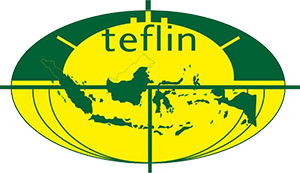Challenges and Limitations in the Course Design and Assessment Framework for the Introduction to Literature Course at a Saudi Arabian University
Abstract
Teaching Literature without a prerequisite in a Saudi Arabian University curriculum for EFL students revealed a variety of impediments, including a lack of critical and analytical skills, ambiguity tolerance issues, and a low level of English proficiency. This research aims to examine the course limitations and assessments and provide a development strategy to improve those key skills. As a result, the study separated the topic into numerous questions that constitute the primary axes the research aims to address. The first question is whether the existing course design, ENG280 Introduction to Literature, is appropriate for level-4 students. The second question concerns whether a prerequisite should be included in the academic plan. The final question concerns how students' English proficiency affects their understanding of the course. Methodological triangulation is used to address these questions appropriately. Utilizing both qualitative and quantitative data collection methods provides the availability of high-quality data required to improve the findings. The data was collected using a lecturer's questionnaire and an English language competence test. The language competence test is aligned with the 2020 edition of the Common European Framework of References for Languages (CEFR). The study highlighted flaws in the course design and assessments, including advanced skill expectations inappropriate for fourth-level students' linguistic and skill capabilities. As a result, the study provides developmental suggestions for course design and assessments that can successfully address issues connected to students' linguistic and literary abilities. Implementing the improvement plan will enhance the student's linguistic level and develop their critical analysis abilities simultaneously. Students will also have sufficient time and diverse assessment methods that align with their linguistic and literary capabilities, providing them with encouragement and motivation to learn.
Keywords
Full Text:
PDFReferences
Almeida, A. B., Bavendiek, U., & Biasini, R. (Eds.). (2020). Literature in language learning: New approaches. Research-publishing.net.
Alshammari, H. A., Ahmed, E. A., & Shouk, M. A. A. (2020). Challenges to studying English literature by the Saudi undergraduate EFL students as perceived by instructors. English Language Teaching, 13(3), 8. https://doi.org/10.5539/elt.v13n3p8
Bloemert, J., Paran, A., Jansen, E., & van de Grift, W. (2019). Students’ perspective on the benefits of EFL literature education. The Language Learning Journal, 47(3), 371-384. https://doi.org/10.1080/09571736.2017.1298149
Craster, R., Dunning, C., Giblin, P., Glaister, P., Heslop, M., Humble, S., Pope, S., Porkess, R., Rogers, A., Walker, L. and Wilson, H., (2014). Report of the ALCAB panel on mathematics and further mathematics. Technical Report. A Level Content Advisory Board. http://alcab.org.uk/reports/
Domínguez Romero, E., Bobkina, J., & Stefanova, S. (Eds.). (2019). Teaching literature and language through multimodal texts. IGI Global. https://doi.org/10.4018/978-1-5225-5796-8
Freddie Lulamuna Mwape. (1984). The objectives of teaching literature in Zambian secondary schools and the extent of the attainment through the set book syllabus. University of Zambia.
Hasna, H., Retnaningdyah, P., & Mustofa, A. (2024). The literature course mapping in the undergraduate curricula of EFL education: A case study in several countries in Asia. Journal of Language Teaching and Research, 15(3), 935-945. https://doi.org/10.17507/jltr.1503.27
Hussein, A. (2009). The use of triangulation in social sciences research: Can qualitative and quantitative methods be combined?. Journal of Comparative Social Work, 4(1), 106–117. https://doi.org/10.31265/jcsw.v4i1.48
Hussein, E. T., & Al-Emami, A. H. A.-E. (2016). Challenges to teaching English literature at the University of Hail: Instructors’ Perspective (SSRN Scholarly Paper 2898620). Social Science Research Network. https://doi.org/10.2139/ssrn.2898620
Isikli, C., & Tarakçioglu, A. Ö. (2017). Investigating problems of English literature teaching to EFL high school students in Turkey with focus on language proficiency. Journal of Language and Linguistic Studies, 13(2), 82–95. https://dergipark.org.tr/en/pub/jlls/issue/36120/405598
Jones, C. (Ed.). (2019). Literature, spoken language and speaking skills in second language learning. Cambridge University Press. https://doi.org/10.1017/9781108641692
Kachele, E. (2022). A comprehensive handbook for ordinary level literature for secondary schools: Best for literature students: Forms 2, 3 & 4. 2nd Eds. www.kacheleonline.co.tz
Krishnasamy, J. (2015). An investigation of teachers approaches employed in teaching the English literature. Asian Journal of Education and E-Learning, 3(2), Article 2. https://www.ajouronline.com/index.php/AJEEL/article/view/2519
Naji, J., Subramaniam, G., & White, G. (2019). New approaches to literature for language learning. In New Approaches to Literature for Language Learning. Springer International Publishing. https://doi.org/10.1007/978-3-030-15256-7
Pawlak, M., & Mystkowska-Wiertelak, A. (Eds.). (2018). Challenges of Second and Foreign Language Education in a Globalized World. Springer International Publishing. https://doi.org/10.1007/978-3-319-66975-5
Sun, X. (2023). Literature in secondary EFL class: Case studies of four experienced teachers’ reading programmes in China. The Language Learning Journal, 51(2), 145-160. https://doi.org/10.1080/09571736.2021.1958905
Teranishi, M., Saito, Y., & Wales, K. (Eds.). (2015). Literature and language learning in the EFL classroom. Palgrave Macmillan UK. https://doi.org/10.1057/9781137443663
Tsagari, D., & Sifakis, N. C. (2014). EFL course book evaluation in Greek primary schools: Views from teachers and authors. System, 45, 211-226. http://dx.doi.org/10.1016/j.system.2014.04.001
Unesco (2005). EFA Global Monitoring Report. Understanding education quality. https://www.unesco.org/gem-report/en/efa-quality
Viktorovna, B. S., & Viktorovna, S. E. (2020). Needs analysis in course design: Converging learners’, instructors’ and developers’ voices. Porta Linguarum: revista internacional de didáctica de las lenguas extranjeras, (33), 145-162. http://hdl.handle.net/10481/62814
Vu, T. Van, Magis-Weinberg, L., Jansen, B. R. J., van Atteveldt, N., Janssen, T. W. P., Lee, N. C., van der Maas, H. L. J., Raijmakers, M. E. J., Sachisthal, M. S. M., & Meeter, M. (2022). Motivation-achievement cycles in learning: A literature review and research agenda. In Educational Psychology Review, 34(1), 39–71. Springer. https://doi.org/10.1007/s10648-021-09616-7
Yuliani, S., Yulianto, Y., & Hartanto, D. (2021). Powtoon animation video in introduction to literature class: Students’ perception. AL-ISHLAH: Jurnal Pendidikan, 13(1), 630–637. https://doi.org/10.35445/alishlah.v13i1.540
DOI: http://dx.doi.org/10.21043/jetli.v7i2.22552
Refbacks
- There are currently no refbacks.
Copyright (c) 2024 Journal of English Teaching and Learning Issues







